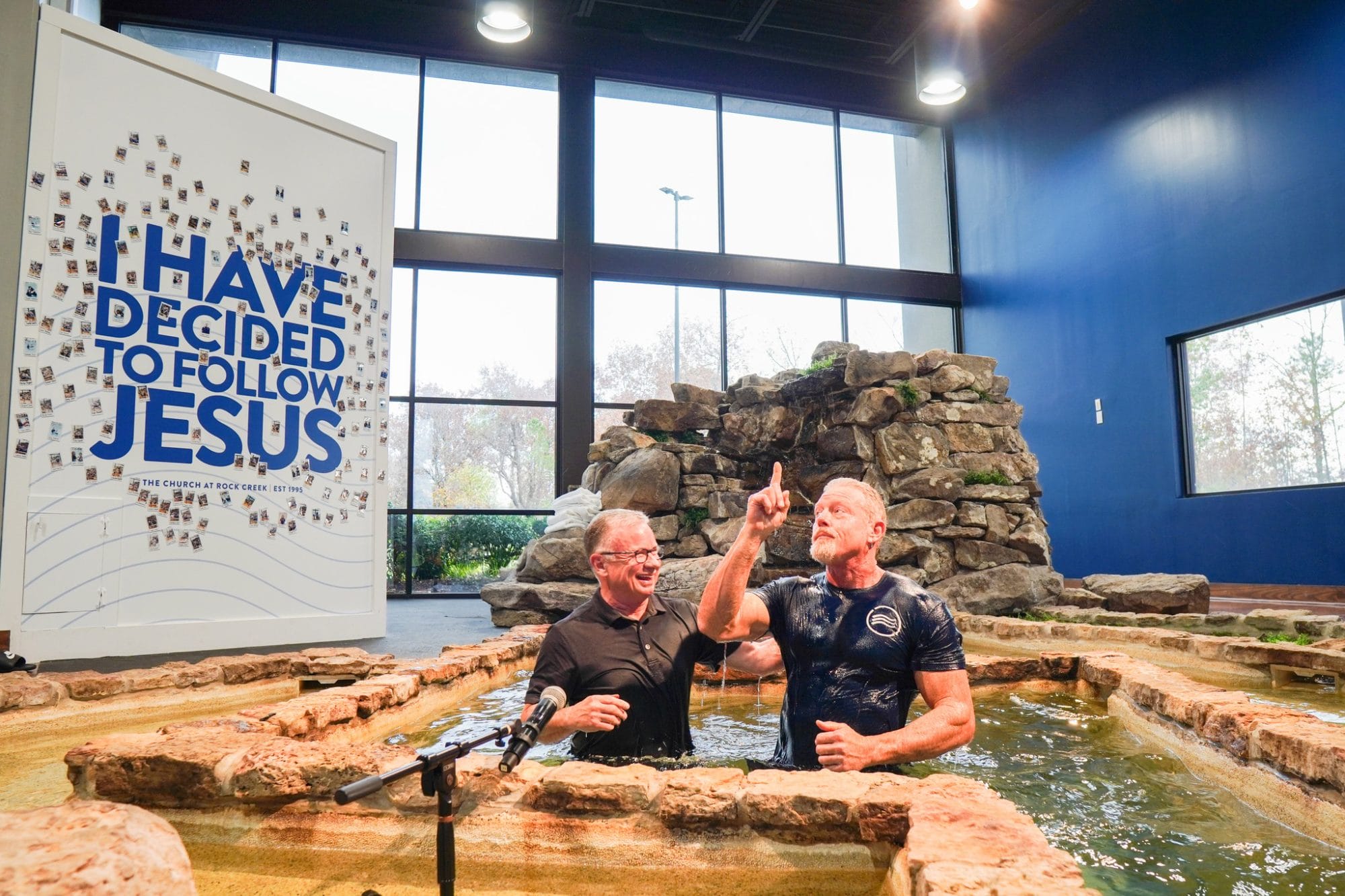Taking Jesus as He Is to People as They Are
Mark Evans was the pastor of a thriving youth ministry at his Florida church in the early 90s. On any given week, 750 kids attended the church’s youth group. He lived an hour from the beach each way, and Disney World was only 20 minutes away. Mark was also next in line to become senior pastor at the church. On the surface, Mark thought, “Man, I’m set.” But something stirred in Mark that maybe God had a different path for him.
“God laid it on my heart and my wife’s heart to start a church from the ground up.” For the next three years, Mark studied the success stories and cautionary tales in church planting worldwide. “I knew of a few people who had started churches, but I didn’t know anything about it,” he tells me. As he and his wife Terry prayed over the future, God narrowed their list of cities down to Dallas, Atlanta, Orlando, and Little Rock, Mark’s hometown. Atlanta appealed to Mark because it was a major metropolitan area, but, as Mark recalls, “God kept closing doors everywhere else and opening doors in Little Rock.”
Eventually, Mark and his wife took a step of faith into an unknown future. In August 1995, they packed everything into a U-Haul and moved their family back to Little Rock. When they arrived, they had nowhere to meet, no people, and little money. But that didn’t deter Mark. Being a driven, Type-A personality, Mark went right to work. “We hit the ground running. We just needed to start, so we started talking to people.”
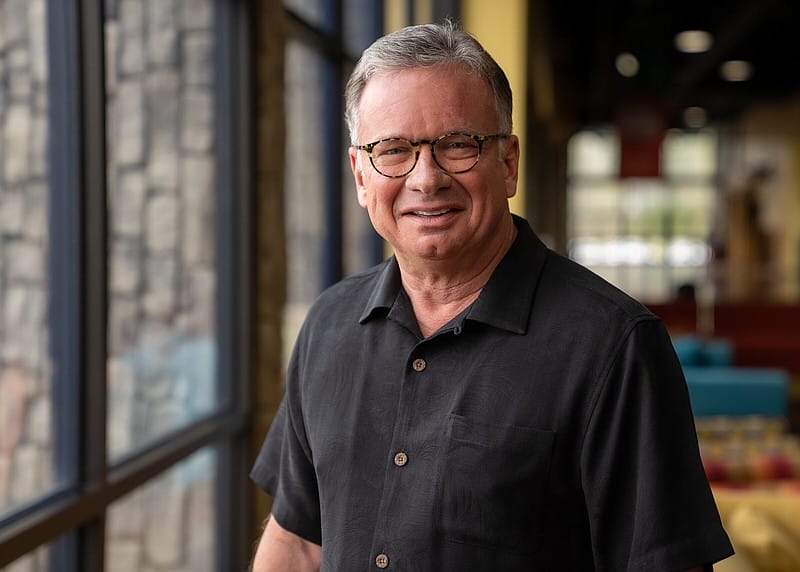
In November, the Church at Rock Creek had its first service with 24 people. The next Sunday, attendance dipped to 17. Mark quips, “And that’s why you never start a church during deer season.” The journey wasn’t without its moments of doubt and uncertainty. Were they headed in the right direction? Was God in this? It wasn’t until Easter that Mark had an ‘Aha!’ moment. “When I saw how people responded, that’s when I thought, ‘Okay, we’re going to make it.’”
Mark describes the early years at Rock Creek as “a whole lot of trust in God and the constant experience of seeing God do something that you didn’t see coming in ways He would provide. Seeing how God would show up and how God is faithful in those things, it was just a life-changing adventure, one that has laid the groundwork for our church all of its life.”
An Unchanging Mission
It’s a cold, overcast day in December when Mark and I meet for an interview. It’s close to Christmas, so things are quiet around the church office. Some have already taken off for the holidays, while others are out sick. Mark greets me when I arrive and leads me into his office. He’s wearing a button-down shirt, a puffy vest, jeans, and sneakers. Mark is an excellent communicator, a skill he’s developed over decades of teaching. He doesn’t ramble or wander in conversation; he is efficient and precise in answering questions.
Except for family photos, baseball memorabilia fill the walls of his office. “I’m a huge Chicago Cubs fan and go to as many Cubs games as I can. I was the batboy for the Arkansas Travelers, and then I was their clubhouse manager. I traveled a lot with them. I did that from the time I was nine years old until I was 18, and I built a lot of relationships with players. There’s a whole world of stories from that time.”
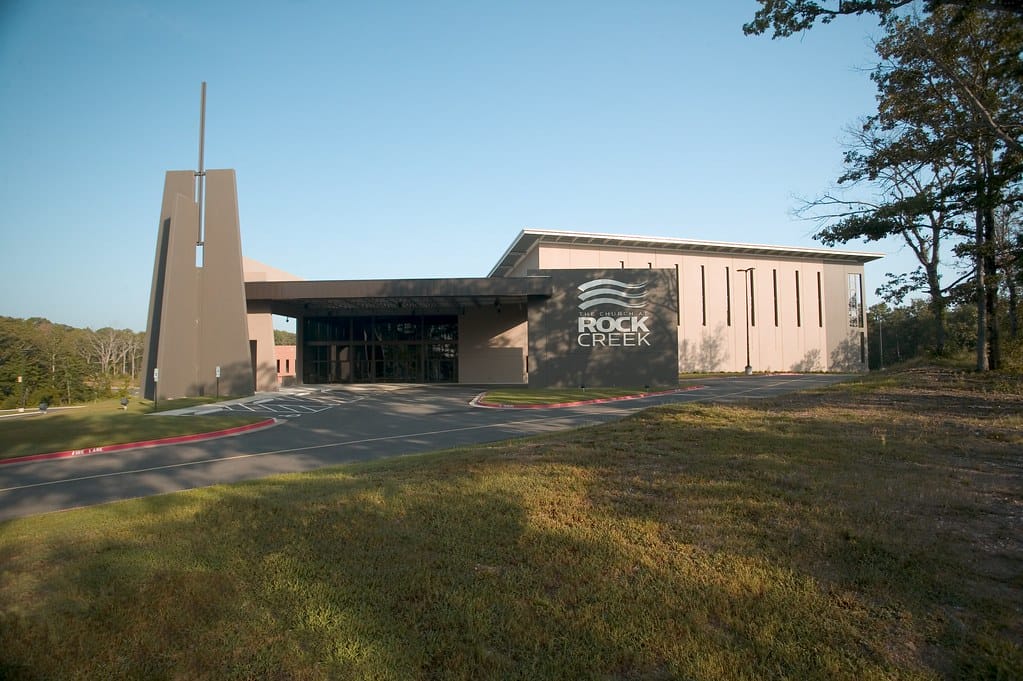
A lot has changed at Rock Creek since 1995. The church moved from a warehouse on South Shackleford to a 40-acre campus on the other side of I-430. The church and its congregation may be bigger today, but one thing that hasn’t changed is its mission—to take Jesus as He is to people as they are. Mark tells me, “We want to reach people where they are, not expect them to be somewhere that they can’t be in their life spiritually. Lost people are going to act lost. We know that Jesus is a good fisherman—He catches fish and then cleans them. He never cleans them before He catches them.”
A Church That Looks a Little Like Heaven
For Mark, every ministry at Rock Creek reflects its mission. “We see where people are, and we show them the love of Christ with the hope that we lead them to a relationship with the Lord.” That includes meeting people’s felt needs and their physical needs. Recently, the church built an 11,000-square-foot food bank to feed families, including 1,800 children every weekend across Central Arkansas. There is a children’s home on campus. “We have house parents there, and the state refers children to us who have been neglected or abused and taken out of their homes. We are a temporary emergency home for them until they can go into foster care or be reunified with their family.” There is also a car ministry led by a volunteer team that receives donated cars, gets them road-ready, and gives them to families, single moms, and widows.
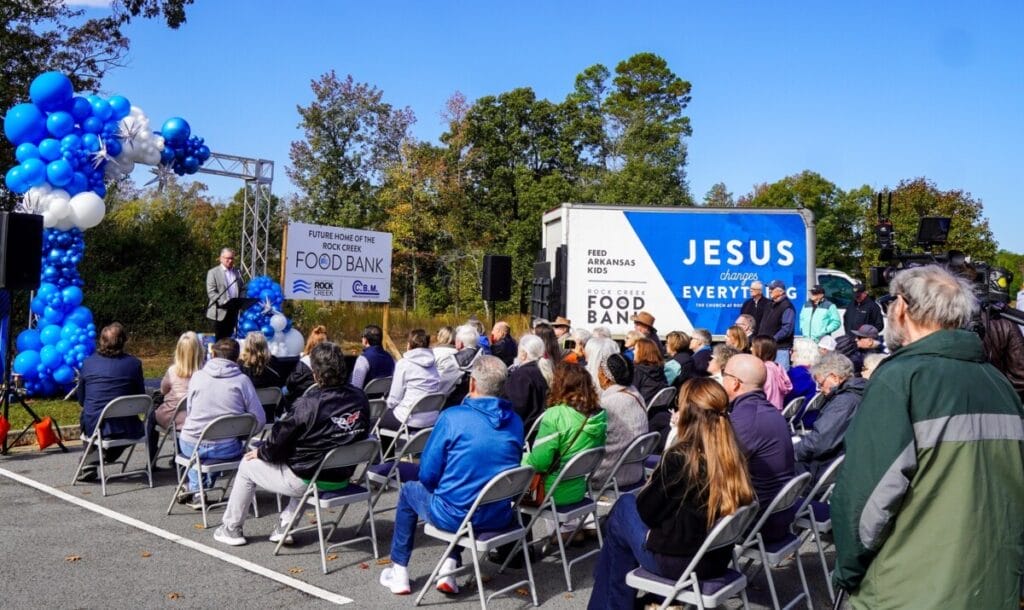
When Mark talks about the personality of Rock Creek’s people, reaching everyone in their community is essential to everything they do. “I do want our church to look a little bit like heaven, meaning we’ve got people from all walks of life, all backgrounds, all races, and all economic factors. At the heart of all those people—whether they’re Black, White, Hispanic, in poverty, or in wealth—they share something in common spiritually. That’s a connector for them and for us. Ministry connects them, too, because all those people, no matter their differences, care about things like feeding kids, and that brings them together.”
When I ask Mark how the church has adapted to changes in culture over the years, he tells me, “We’ve been a church for 28 years now, and we’ve seen the needs of the city change, especially in Central Arkansas.” He goes on. “Being innovative for the sake of innovation is not effective, but being innovative for the sake of figuring out another way to reach people is. We’ve done some good things to make those changes, and we’ve done some bad things, too. I constantly remind everybody that it’s okay for us to fail. We don’t want to make it a way of life, but it’s okay to fail if we’re trying. Because of the changes in culture—especially after the pandemic—we’ve had to figure out new ways to reach and disciple people.”
Developing Tomorrow’s Leaders
One way the church drives innovation is through the Immerse Institute, an on-campus discipleship program designed to encourage, educate, and equip Christ-followers for biblical discipleship. The church’s other teaching pastor, Greg Kirskey, leads the program, which offers a practical and unique approach to discipleship. Mark tells me, “It’s been great because it’s taken discipleship to a new level. It’s a nine-month program, and some of the classes are at a college level. We have about 200 people involved right now.”
At 61, Mark still has the energy and motivation to continue leading. That being said, he wants to develop tomorrow’s leaders at the church. “We’re all working toward giving ministry away, giving leadership roles away, and letting others make decisions. Leadership development is about walking with them through those processes, letting them see me do it, walking with them while they do it, and then letting them go do it. It really is the Jesus model.”
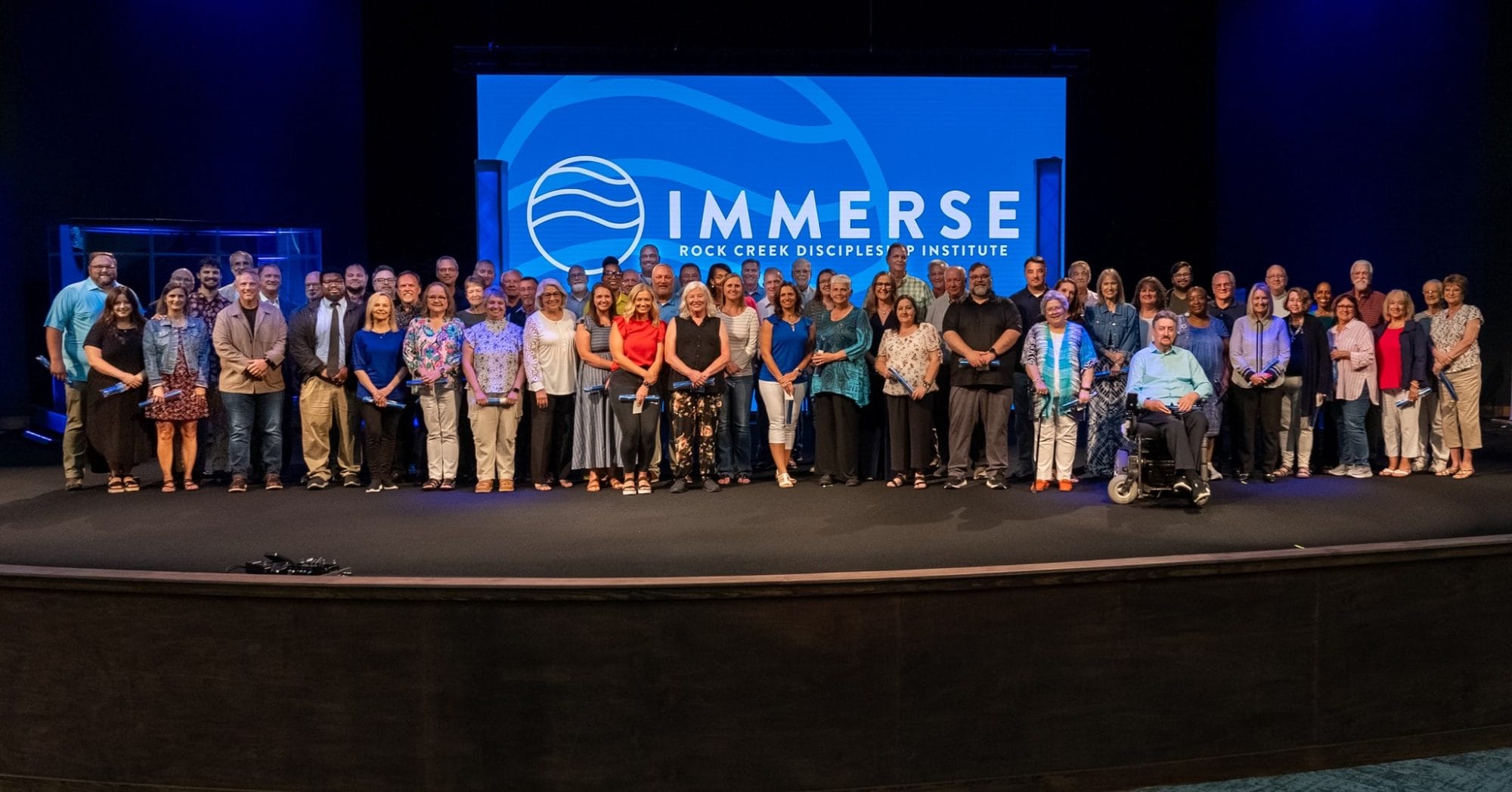
“How would you describe Jesus as a leader?” I ask Mark. He pauses for a moment and says, “Jesus’ approach to people as a leader was to love them where they were and figure out what their need was. He led with that. Jesus shows us that a person’s need really becomes their superpower at a certain point. Once they come to the Lord and find their need met in Him, they often end up finding others with the same need who don’t yet know the Lord.
“Jesus knew how to plug into that and connect with people. Think about everybody he encountered—Zacchaeus, the woman at the well, and on and on. That’s what he did. But He did it all out of a place of a loving heart. His style of communication was never about yelling or condemning. Certainly, Jesus was clear about what is right and wrong, and He didn’t compromise on truth. But how He went about it is what influenced people the most.”
A Hundred Years from Now
As one church of many in the city, Mark sees the value of churches working together in Central Arkansas. Churches of all sizes can think of creative ways to collaborate. He explains, “I think the importance is in how we can help each other. What is it that we, as a church that’s larger, might have that a smaller church needs?”
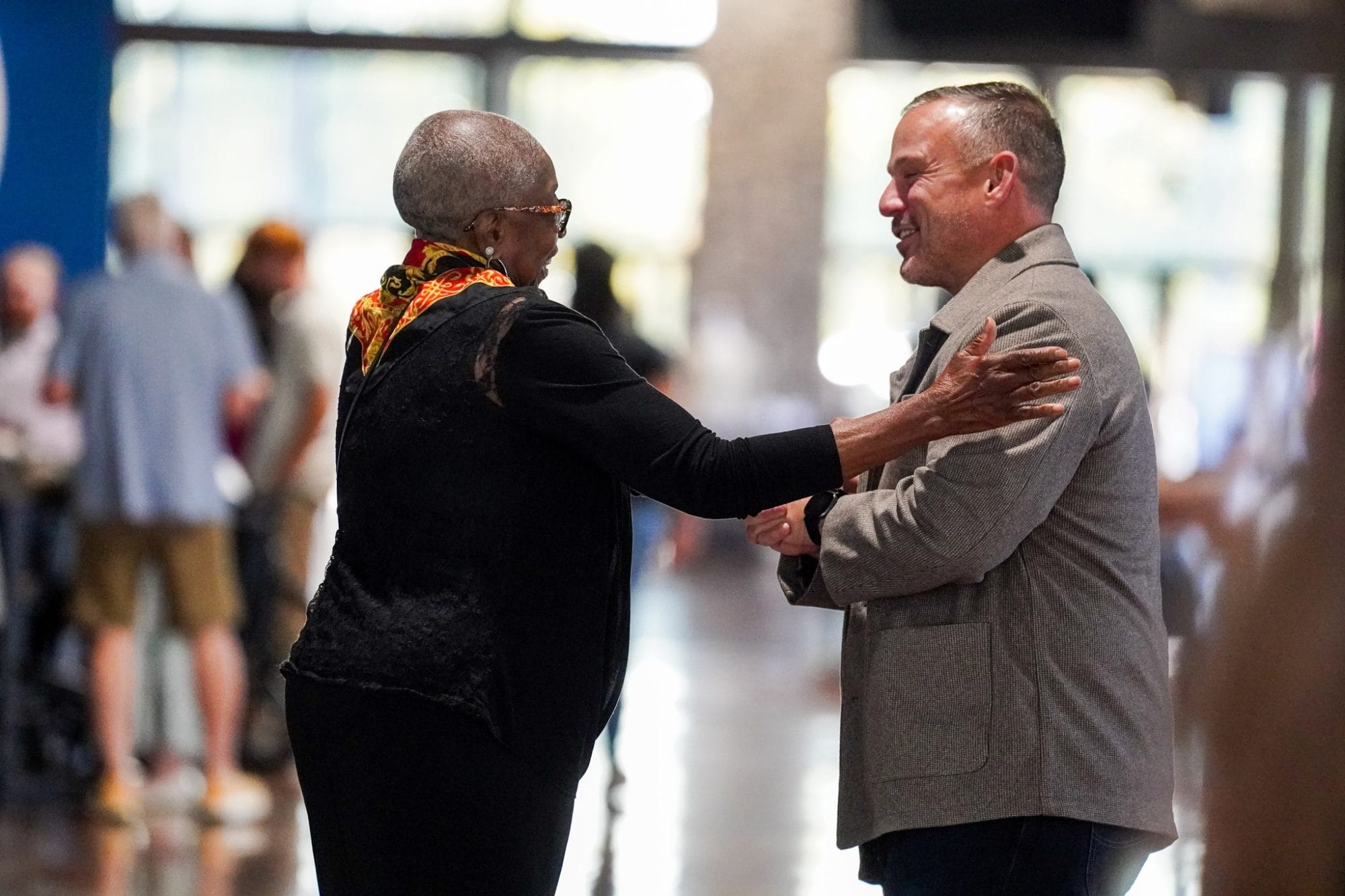
When Mark thinks about the church’s legacy 100 years from now, he hopes Central Arkansas is different because of Rock Creek. “At some point, I think most everyone in Little Rock wakes up one day—maybe they’re far from the Lord, maybe they’ve never gone to church, maybe they don’t know anything about the Lord—but at some point in their life, they wake up and say, ‘Man, I need to do something. I’m going to die someday. I need to figure something out.’ One hundred years from now, I hope people think, ‘I need to go to the Church at Rock Creek. I think they can help point me in the right direction.’ I want our reputation to continue to be a congregation that shows the love of Jesus more than anything else.”
We are grateful for the exceptional work of the Church at Rock Creek and other churches in our cities working together to take Jesus as He is to people as they are. They are helping the whole Church grow.
Speaking the truth in love, we will grow to become in every respect the mature body of him who is the head, that is, Christ. From him, the whole body, joined and held together by every supporting ligament, grows and builds itself up in love, as each part does its work.
Ephesians 4:15-16
